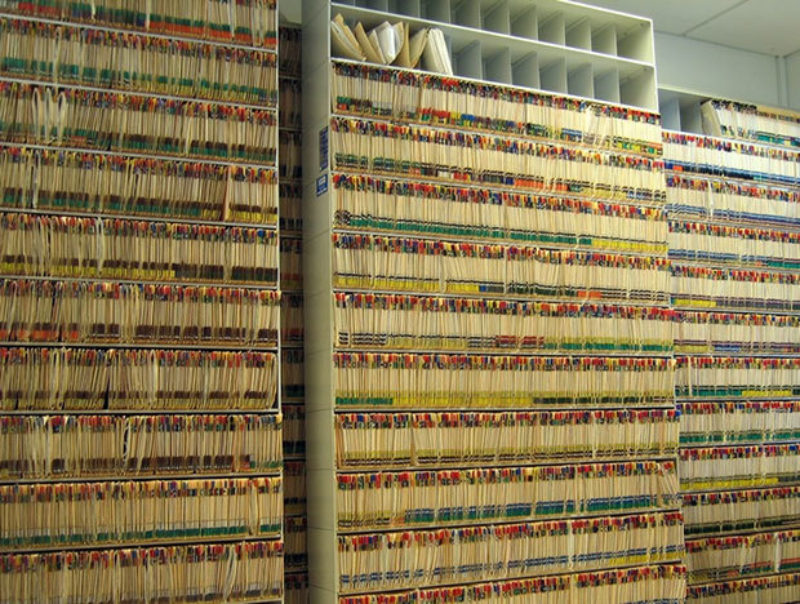May 2, 2009

This is the fourth of a series of pieces originally posted at Fast Company.
In the U.K. in the 1940s, Sir William Beveridge designed what became known as the welfare state. In an ambitious program, the post-war Labor government attempted to put in place a series of services designed to ensure that the population of Britain could reliably receive high-quality public education, health care and other public services. Beveridge envisioned a system in which citizens participated directly in their own well-being. Instead, he helped create what he later described as a "culture of consumption" of public services.
Here in the U.S., a "culture of consumption" is exactly what we have when it comes to health care. The third-party payer system (whether it is private insurance or government) has created passive consumers of health-care services who have little motivation to engage, and bloated, bureaucratic service providers who have little motivation to become more efficient. It is difficult to envision any effective reform of our seemingly doomed system that does not demand much higher levels of engagement from all the participants in the system.
As individuals, we must become more engaged with our health, including living lives that promote health and wellness rather than encourage the onset of chronic disease. As corporations, we must consider the social contract we have that grants us permission to operate and extract profits. As health-care providers and insurers, we cannot continue to demand an ever-increasing percentage of the nation's wealth without providing widespread and sustainable benefits. Instead of each remaining entrenched in our own view of the system, we must find ways to achieve what presumably is a shared goal of a healthy and productive society.
Fundamental to this collaboration is the creation of platforms that encourage participation. By this I don't mean goading people into eating healthier food or taking more exercise. These may be beneficial outcomes of other more systemic innovations, but they are not, on their own, going to create the major shifts that we need.
Two platforms that are already under discussion and, in my opinion, offer huge potential for improved collaboration and participation, are e-medical records and health savings accounts (HSAs). With the risk of sounding like a health-care reform lobbyist, here is why I think they are important, but also why I think current ideas about these platforms run the risk of limiting their impact.
Electronic medical records offer the opportunity for each and every member of society to take control of his or her health. Instead of waiting for some symptom to drive us to the doctor, we can integrate information from a host of sources, including ever more pervasive monitoring technologies, to give us a picture of our health. This system could also provide goals, allow us to rate and recommend service providers, let us explore alternative means of achieving health goals, and enable us to create a personal network of health providers where each individual expert can interact with every other to ensure optimum outcomes.
E-medical records can do for health what Facebook is doing for the creation and maintenance of social groups. However, they can only do this if they are designed to serve the needs of every stakeholder, but particularly us as individual citizens. If, instead, they are designed merely to automate existing bureaucratic processes, or to protect the interests of incumbents--including promoting walled gardens of information--then we will miss a huge opportunity to change the way individuals engage with their health.
Open, connected e-medical records designed to support unknown future products and services should be the goal. Imagine an equivalent to the Apple application store where all kinds of health products and services are available and where it is easy for us to build our own unique and personal toolkit for being and staying healthy.
Just as important as the acquisition and management of health services is the question of who pays for them. There is obviously a need for some kind of risk sharing to make health care equally accessible to all. In our current system there is little to motivate individuals to alter their behavior in the interests of better health.
Corporate America has been far more effective at encouraging us to spend money on fashion and beauty or SUV's than it has been at seducing us to focus on our health. While the introduction of Health Savings Accounts (HSA's) was a result of attempts to limit rising corporate health-care costs and to give individuals the opportunity to do some of their own risk management, I think they offer an opportunity for the government to significantly change our attitudes towards health.
Existing insurers are understandably reluctant to offer to pay for new services that might have a long-term preventative benefits but are yet unproven, but governments do this kind of this all the time. If the rules around what is a legitimate expenditure for an HSA were open to experiment, I believe that a host of nutrition, fitness and other health-related products and services would emerge to compete with the existing health-care services we have today.
Ultimately, enlightened insurance companies would provide additional benefits to those who took control of their personal health, thus helping to accelerate the shift to health versus health care. Existing incumbents in the health-care industry would get more serious about offering scientifically proven offerings, such as nutrition monitoring, if they could see that there was a significant market for them. Since we, as individuals, would be paying for them with our own dollars those offerings would much more likely be cost efficient.
E-medical records and HSAs are both examples of platforms that encourage participation and that can support an eco-system of innovation that results in untold benefits. Are there other participation-based platforms that might have an impact on health in America?